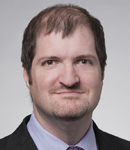 This post was originally published on the IntraHealth International blog.
This post was originally published on the IntraHealth International blog.
When we talk about building strong health systems and the health workers to run these systems, we often think about doctors or nurses or community health workers. Just as crucial to health systems are robust health information systems that help manage and make accessible information about patients, clinics, budgets, payroll, and all the other details that make a health care system work.
When it comes to building a strong electronic health (eHealth) information system, the user is, arguably, the most important part.
Still weak, but growing
An eHealth workforce requires system administrators, programmers, and analysts who sustain and extend a country’s health information systems and eHealth technologies. Many countries in the developing world have growing but weak information and communication systems, which makes building the eHealth infrastructure system an ongoing challenge. Read more »
